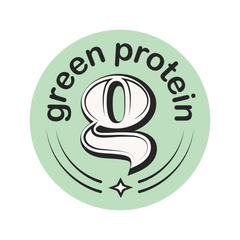
Is Protein Powder Healthy for You? Pros and Cons
Protein powder has become a staple supplement in the fitness industry, touted for its ability to support muscle growth and recovery. But beyond the gym, many people use protein powder to help meet their daily protein requirements. As with any supplement, it's essential to understand its potential benefits and drawbacks before incorporating it into your routine. So, is protein powder healthy for you? Let's explore the pros and cons.
Pros of Using Protein Powder
- High Protein Content: Protein powders provide a concentrated source of protein, which is necessary for building and repairing tissues, including muscles. They can help individuals meet their daily protein needs, especially those who have higher protein requirements like athletes, older adults, and people recovering from surgery.
- Convenience: Protein powders offer a quick and convenient way to increase protein intake. They can easily be mixed into drinks or incorporated into a variety of recipes.
- Weight Management: High-protein diets can promote feelings of fullness, which may help in weight management by reducing overall calorie intake.
- Muscle Recovery and Growth: Consuming protein post-workout can aid muscle recovery and stimulate muscle growth. The amino acids in protein help repair exercise-induced muscle damage and promote the growth of new muscle tissue.
- Variety of Types: Protein powders come in a variety of types, including whey, casein, soy, pea, and rice protein, allowing individuals to choose a product that suits their dietary preferences and restrictions.
Cons of Using Protein Powder
- Potential Nutrient Imbalance: While protein powders can help meet protein needs, they're not a substitute for whole foods. Whole foods provide a broad range of nutrients not found in protein powders, such as vitamins, minerals, and fiber. Relying heavily on protein powders at the expense of a balanced diet could lead to nutrient deficiencies.
- Digestive Issues: Some people may experience digestive discomforts, such as bloating, gas, and stomach cramps, from consuming protein powders. These issues can be more common with certain types of protein powder, such as whey or casein, especially in individuals who are lactose intolerant.
However their are Vegan plant based proteins also available in the market, such as Green Protein
- Potential Contaminants: Some protein powders may contain contaminants or additives, such as heavy metals, artificial sweeteners, or other substances, which could pose health risks if consumed in large amounts over time.
- Over consumption: While protein is essential for health, consuming too much protein can put a strain on the kidneys over time and may contribute to dehydration, digestive issues, and nutrient imbalances.
- Cost: High-quality protein powders can be expensive, and they represent an ongoing cost if used regularly.
Conclusion
In conclusion, protein powder can be a valuable tool for meeting dietary protein needs, supporting muscle recovery and growth, and aiding in weight management. However, it's essential to use it as a supplement to a balanced diet, not a replacement for whole foods.
Potential downsides include digestive discomfort, potential exposure to contaminants, the risk of over consumption, and cost. Therefore, it's essential to choose a high-quality product, use it in moderation, and consider your individual dietary needs and health situation.
As always, it's wise to consult with a healthcare provider or a registered dietitian before starting any new supplement regimen, including protein powders. They can provide personalized advice based on your health status, dietary needs, and fitness goals. Remember, when it comes to nutrition, there is no one-size-fits-all approach. What works best is a balanced, varied diet, regular exercise, and an overall healthy lifestyle.









